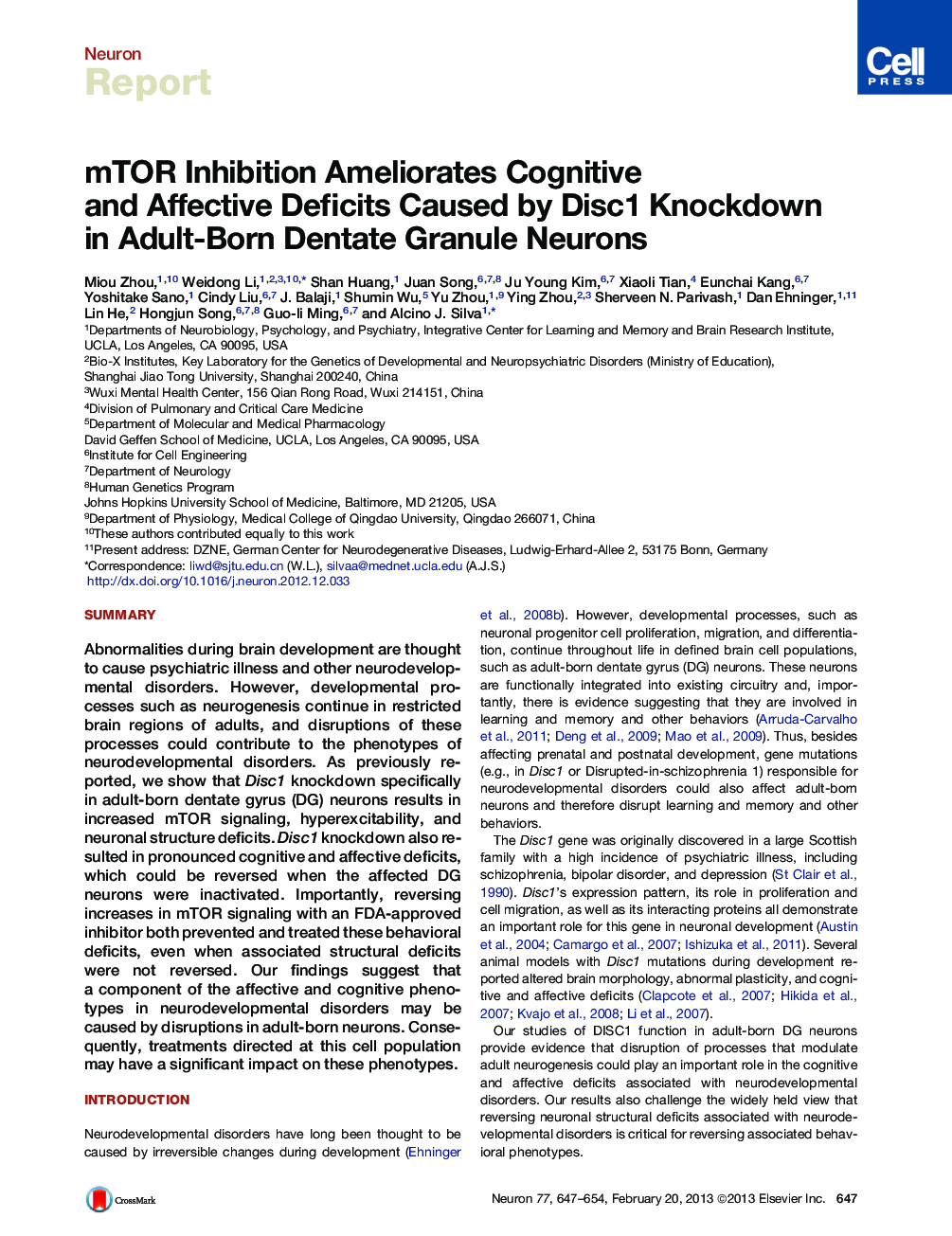| Article ID | Journal | Published Year | Pages | File Type |
|---|---|---|---|---|
| 4321361 | Neuron | 2013 | 8 Pages |
SummaryAbnormalities during brain development are thought to cause psychiatric illness and other neurodevelopmental disorders. However, developmental processes such as neurogenesis continue in restricted brain regions of adults, and disruptions of these processes could contribute to the phenotypes of neurodevelopmental disorders. As previously reported, we show that Disc1 knockdown specifically in adult-born dentate gyrus (DG) neurons results in increased mTOR signaling, hyperexcitability, and neuronal structure deficits. Disc1 knockdown also resulted in pronounced cognitive and affective deficits, which could be reversed when the affected DG neurons were inactivated. Importantly, reversing increases in mTOR signaling with an FDA-approved inhibitor both prevented and treated these behavioral deficits, even when associated structural deficits were not reversed. Our findings suggest that a component of the affective and cognitive phenotypes in neurodevelopmental disorders may be caused by disruptions in adult-born neurons. Consequently, treatments directed at this cell population may have a significant impact on these phenotypes.
► Disc1 knockdown in adult-born DG neurons leads to pronounced behavioral phenotypes ► Behavioral deficits were reversed by inactivating neurons with Disc1 knockdown ► Key behavioral deficits were prevented/treated by reversing mTOR signaling increases ► Reversal of structural deficits is not essential for rescue of behavioral phenotypes
